Portal:German Empire
German Empire
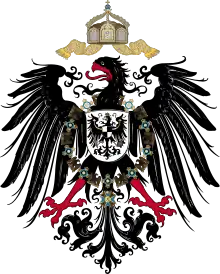
.svg.png.webp)
The German Empire (German: Deutsches Kaiserreich, officially Deutsches Reich), was the German nation state that existed from the Unification of Germany in 1871 until the abdication of Kaiser Wilhelm II in 1918.
The German Empire consisted of 26 states, most of them ruled by noble families. They included four kingdoms, six grand duchies, five duchies (six before 1876), seven principalities, three free Hanseatic cities, and one imperial territory. Although Prussia was one of several kingdoms in the realm, it contained about two thirds of Germany's population and territory.
After 1850, the states of Germany had rapidly become industrialized, with particular strengths in coal, iron (and later steel), chemicals, and railways. In 1871, Germany had a population of 41 million people; by 1913, this had increased to 68 million. A heavily rural collection of states in 1815, the now united Germany became predominantly urban. During its 47 years of existence, the German Empire was an industrial, technological, and scientific giant, gaining more Nobel Prizes in science than any other country.
Selected article

The Imperial German Army (German: Deutsches Heer) was the name given to the combined land and air forces of the German Empire (excluding the Marine-Fliegerabteilung maritime aviation formations of the Kaiserliche Marine). The term Deutsches Heer is also used for the modern German Army, the land component of the Bundeswehr. The German Army was formed after the unification of Germany under Prussian leadership in 1871 and dissolved in 1919, after the defeat of the German Empire in World War I.
The states that made up the German Empire contributed their armies; within the German Confederation, formed after the Napoleonic Wars, each state was responsible for maintaining certain units to be put at the disposal of the Confederation in case of conflict. When operating together, the units were known as the Federal Army (Bundesheer). The Federal Army system functioned during various conflicts of the 19th century, such as the First Schleswig War from 1848–50 but by the time of the Second Schleswig War of 1864, tension had grown between the main powers of the confederation, the Austrian Empire and the Kingdom of Prussia and the German Confederation was dissolved after the Austro-Prussian War of 1866.
Selected biography

Wilhelm II (German: Friedrich Wilhelm Viktor Albrecht von Preußen; English: Frederick William Victor Albert of Prussia; 27 January 1859 – 4 June 1941) was the last German Emperor (Kaiser) and King of Prussia, ruling the German Empire and the Kingdom of Prussia from 15 June 1888 to 9 November 1918. He was the eldest grandchild of the British Queen Victoria and related to many monarchs and princes of Europe.
Crowned in 1888, he dismissed the Chancellor, Otto von Bismarck, in 1890 and launched Germany on a bellicose "New Course" in foreign affairs that culminated in his support for Austria-Hungary in the crisis of July 1914 that led in a matter of days to the First World War. Bombastic and impetuous, he sometimes made tactless pronouncements on sensitive topics without consulting his ministers, culminating in a disastrous Daily Telegraph interview in 1908 that cost him most of his influence.
Selected images
Did you know?

- ...that the Reichstag building was constructed to house the Imperial Diet of the German Empire? It was opened in 1894 and housed the Diet until 1933, when it was severely damaged after it was set on fire.
- ...that the German term Sozialstaat has been used since 1870 to describe state support programs devised by German Sozialpolitiker ("social politicians") and implemented as part of Bismarck's conservative reforms?
Subcategories
Clicking the ► sign will expand or collapse the respective category.
Topics
States of the German Empire
_Hamburg.svg.png.webp)
Kingdoms
Grand Duchies
- Grand Duchy of Baden
- Grand Duchy of Hesse
- Grand Duchy of Mecklenburg-Schwerin
- Grand Duchy of Saxe-Weimar-Eisenach
- Grand Duchy of Mecklenburg-Strelitz
- Grand Duchy of Oldenburg
Duchies
- Duchy of Brunswick
- Duchy of Saxe-Altenburg
- Duchy of Saxe-Meiningen
- Duchy of Saxe-Coburg and Gotha
- Duchy of Anhalt
- Duchy of Saxe-Lauenburg
Principalities
- Principality of Schwarzburg-Sondershausen
- Principality of Schwarzburg-Rudolstadt
- Principality of Waldeck-Pyrmont
- Principality of Reuss-Greiz
- Principality of Reuss-Gera
- Principality of Schaumburg-Lippe
- Principality of Lippe
Free and Hanseatic Cities
- Free and Hanseatic City of Lübeck
- Free and Hanseatic City of Bremen
- Free and Hanseatic City of Hamburg
Imperial Territories
Colonies of the German Empire
The German colonial empire (German: Deutsches Kolonialreich) constituted the overseas colonies, dependencies and territories of Imperial Germany. Short-lived attempts of colonization by individual German states had occurred in preceding centuries, but crucial colonial efforts only began in 1884 with the Scramble for Africa. Germany lost control when World War I began in 1914 and its colonies were seized by its enemies in the first weeks of the war. However some military units held out for a while longer: German South-West Africa surrendered in 1915, Kamerun in 1916 and German East Africa only in 1918 by end of the war. Germany's colonial empire was officially confiscated with the Treaty of Versailles after Germany's defeat in the war and the various units became League of Nations mandates under the supervision (but not ownership) of one of the victorious powers.
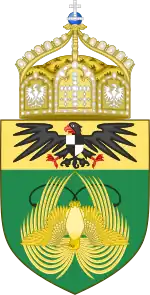 |
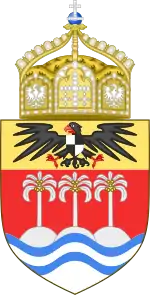 |
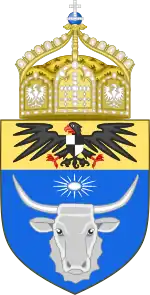 |
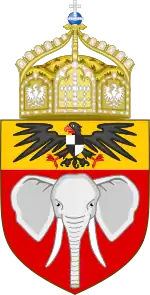 |
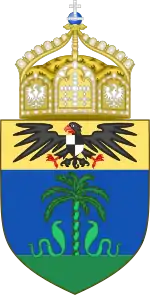 |
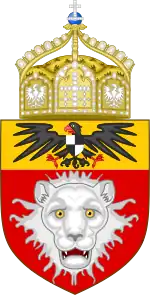 | |
| German New Guinea | German Samoa | German South-West Africa | Kamerun | Togoland | German East Africa |
Associated Wikimedia
The following Wikimedia Foundation sister projects provide more on this subject:
-
 Commons
Commons
Free media repository -
 Wikibooks
Wikibooks
Free textbooks and manuals -
 Wikidata
Wikidata
Free knowledge base -
 Wikinews
Wikinews
Free-content news -
 Wikiquote
Wikiquote
Collection of quotations -
 Wikisource
Wikisource
Free-content library -
 Wikiversity
Wikiversity
Free learning tools -
 Wiktionary
Wiktionary
Dictionary and thesaurus
-
 List of all portalsList of all portals
List of all portalsList of all portals -
 The arts portal
The arts portal -
 Biography portal
Biography portal -
 Current events portal
Current events portal -
 Geography portal
Geography portal -
 History portal
History portal -
 Mathematics portal
Mathematics portal -
 Science portal
Science portal -
 Society portal
Society portal -
 Technology portal
Technology portal -
 Random portalRandom portal
Random portalRandom portal -
 WikiProject PortalsWikiProject Portals
WikiProject PortalsWikiProject Portals

.jpg.webp)
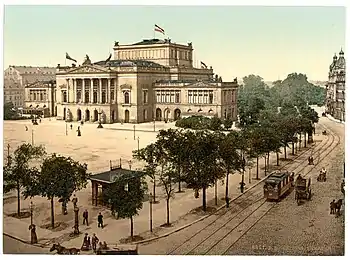
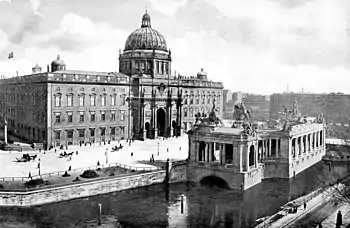
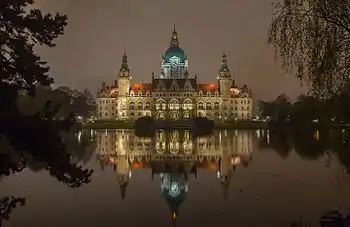
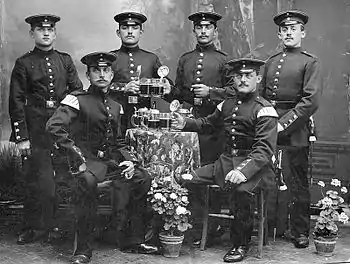
.jpg.webp)
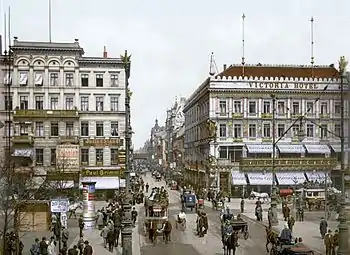

.jpg.webp)
-en.png.webp)